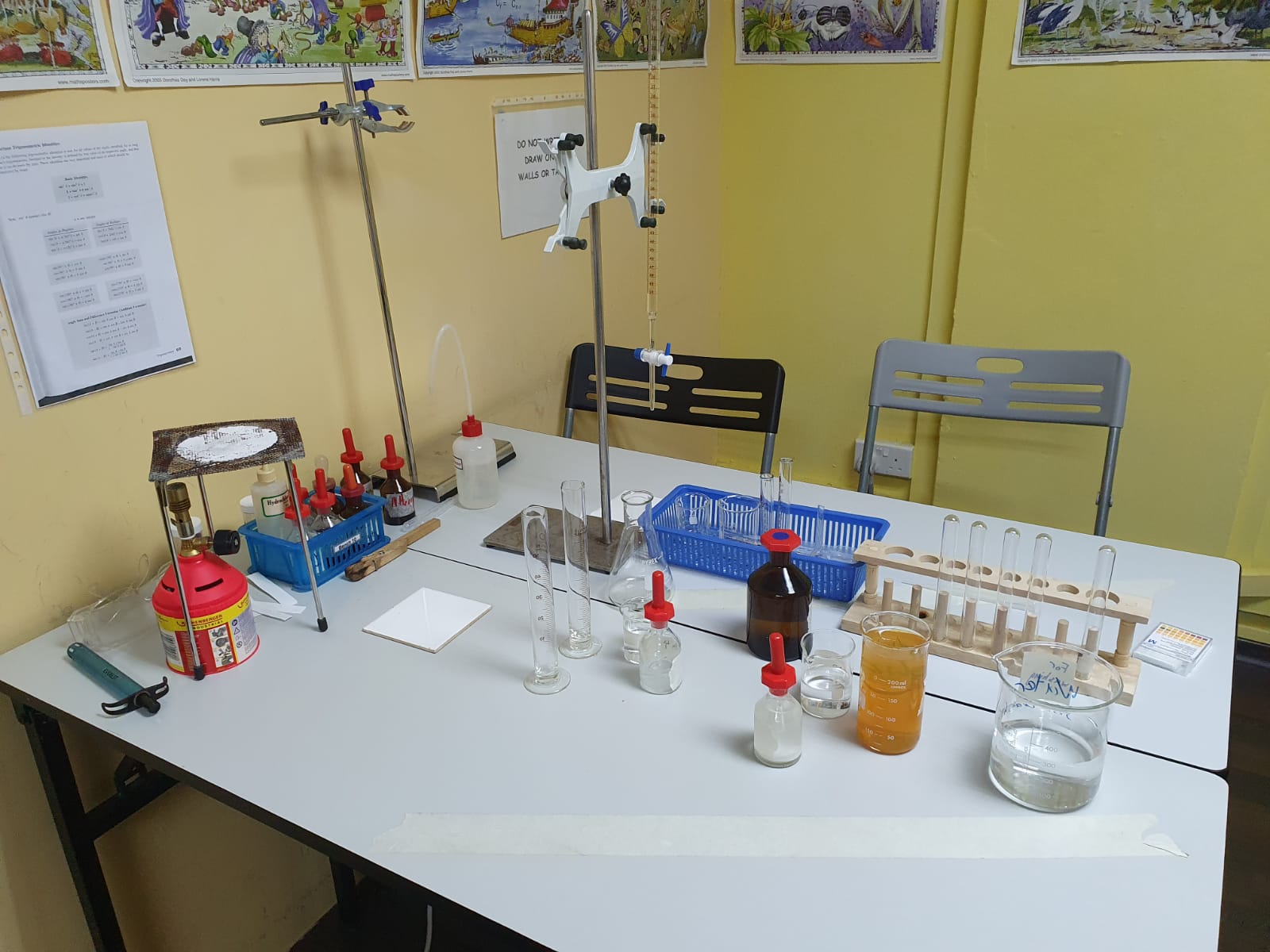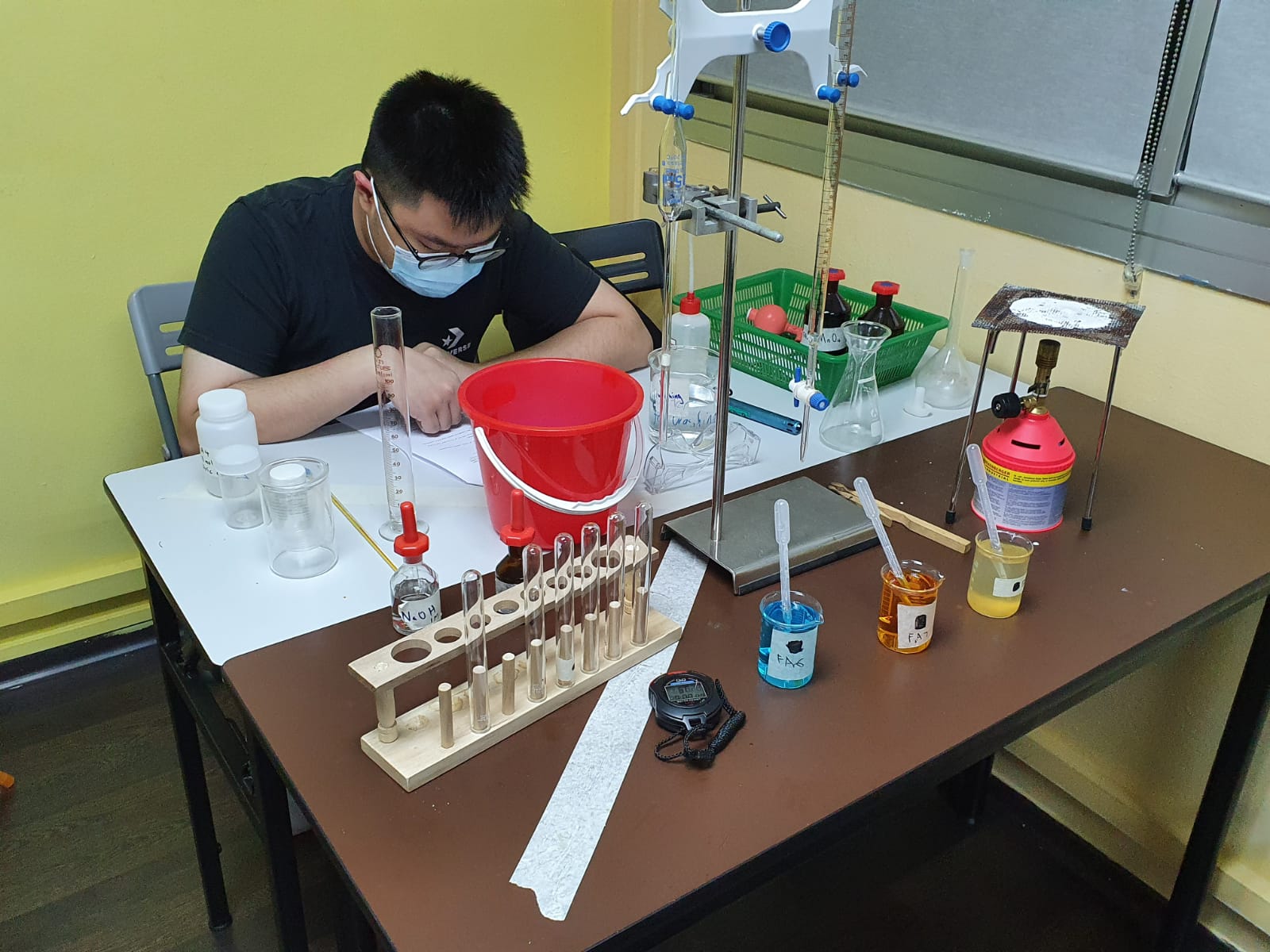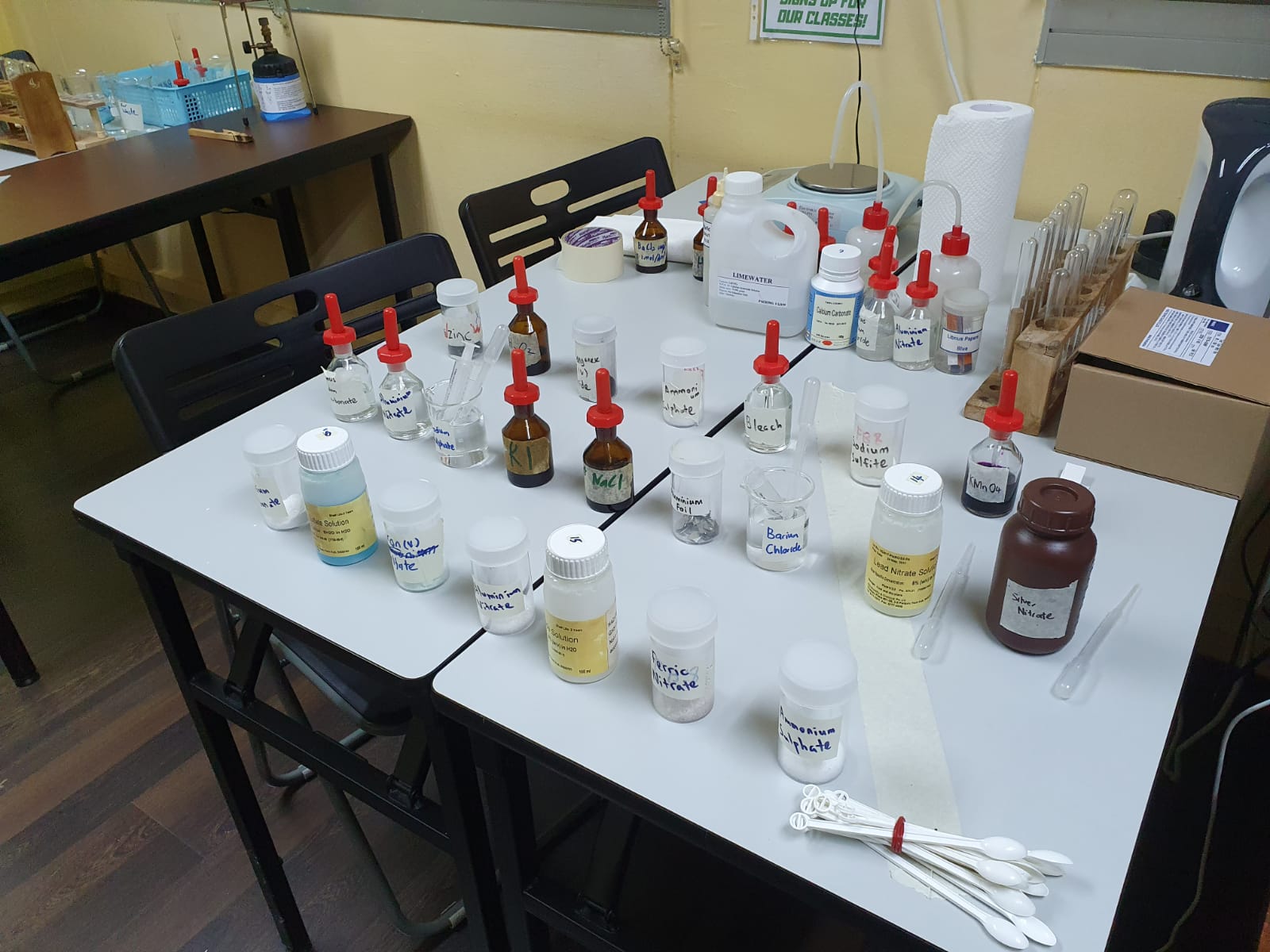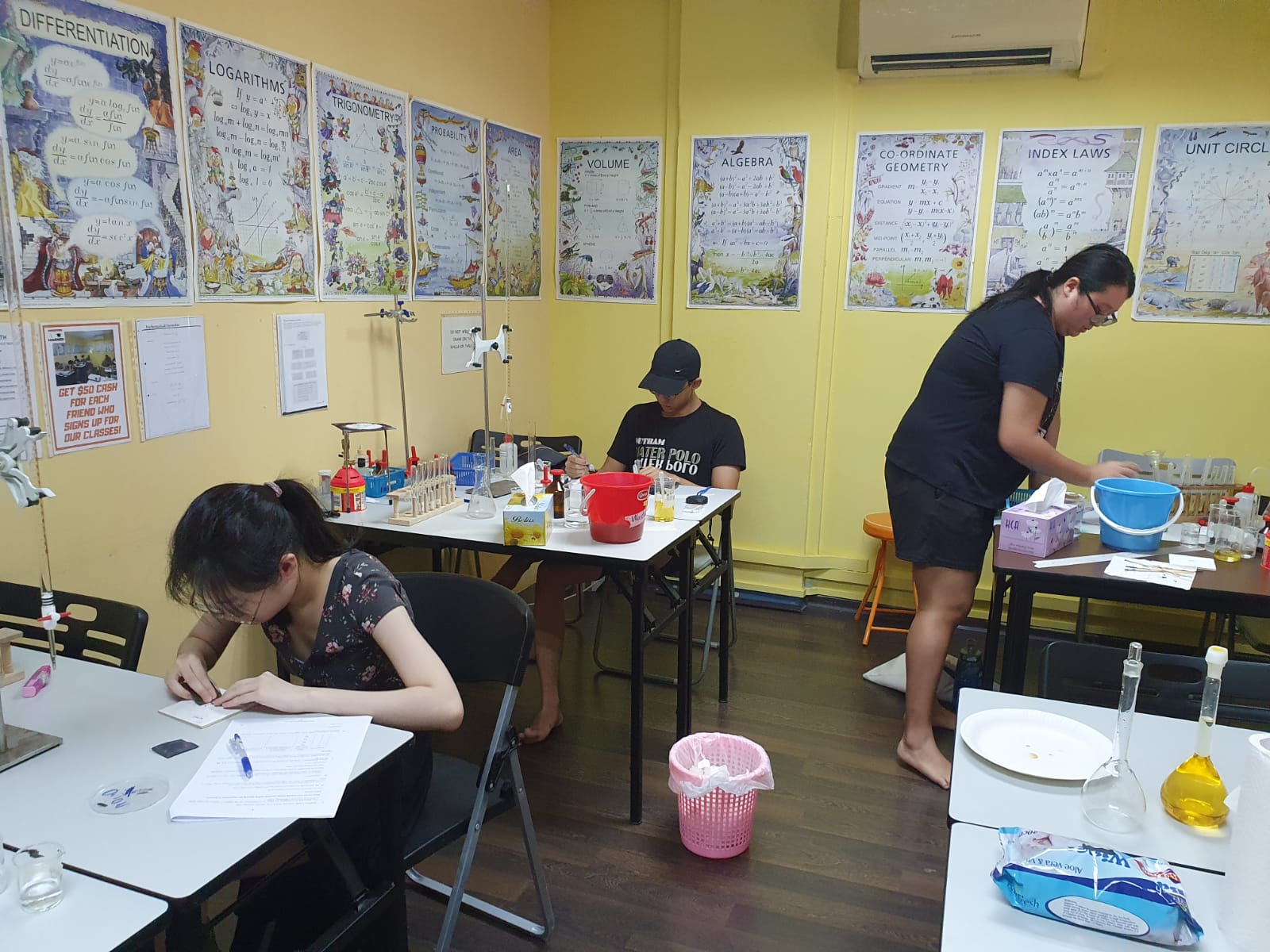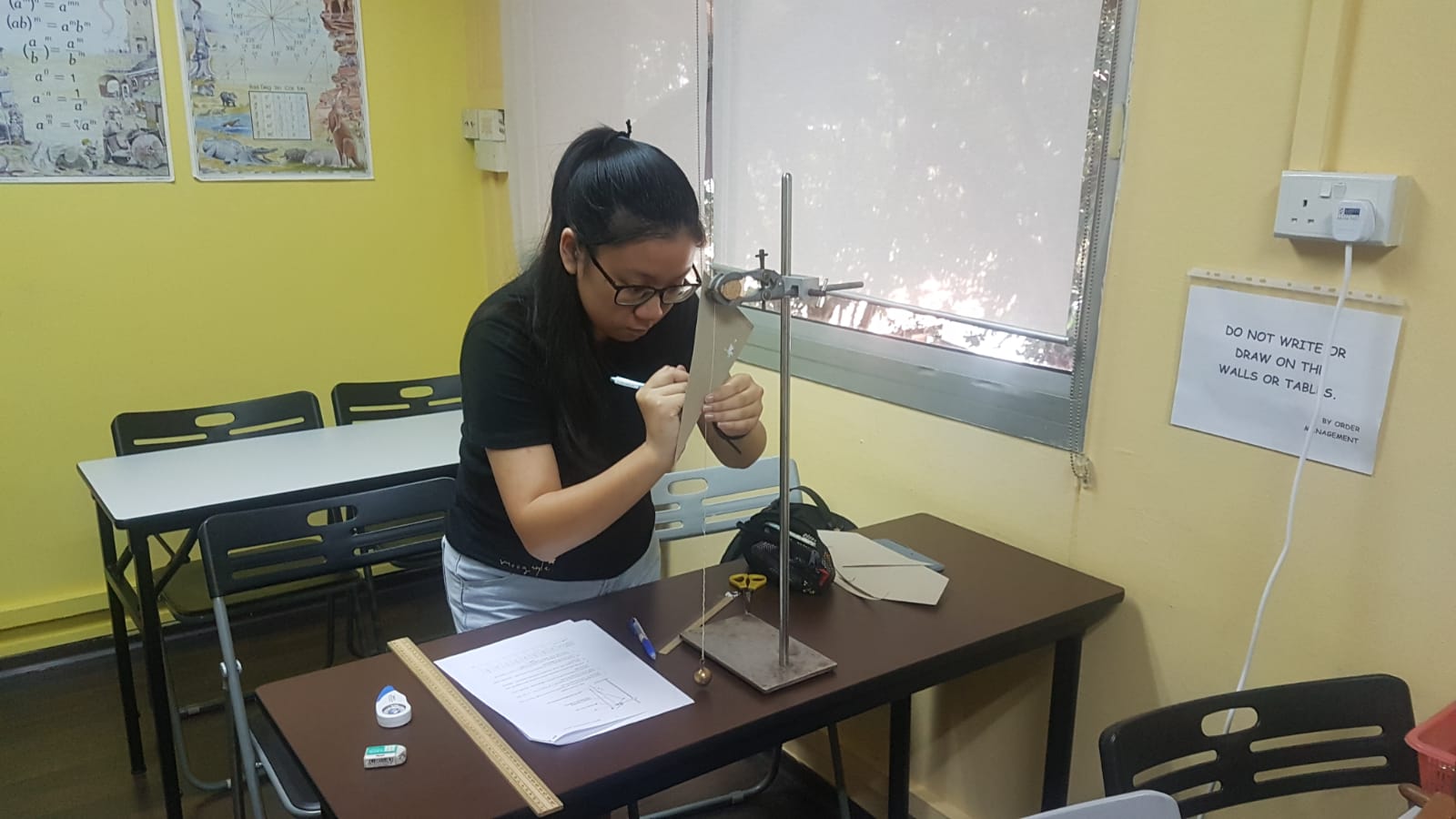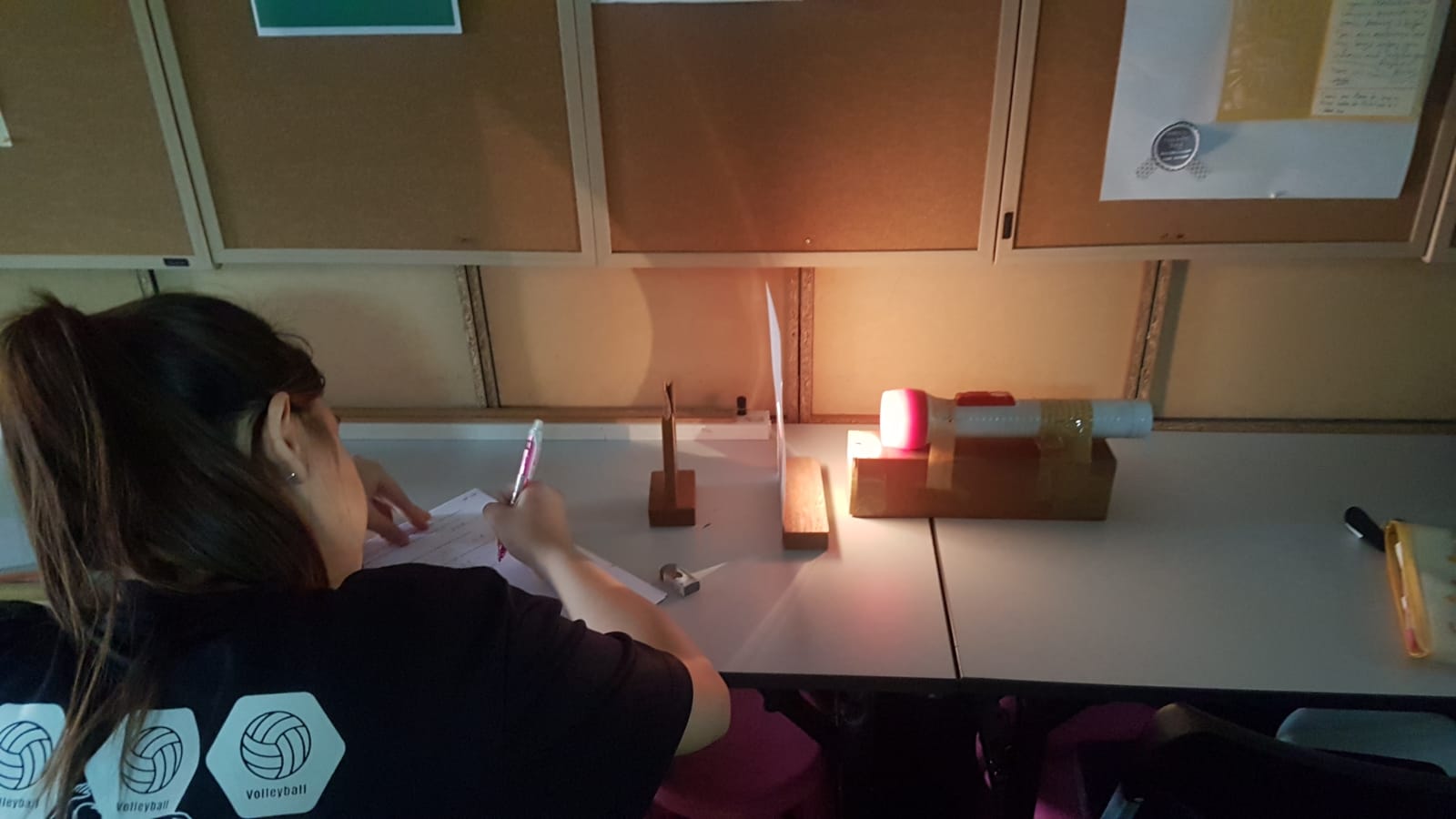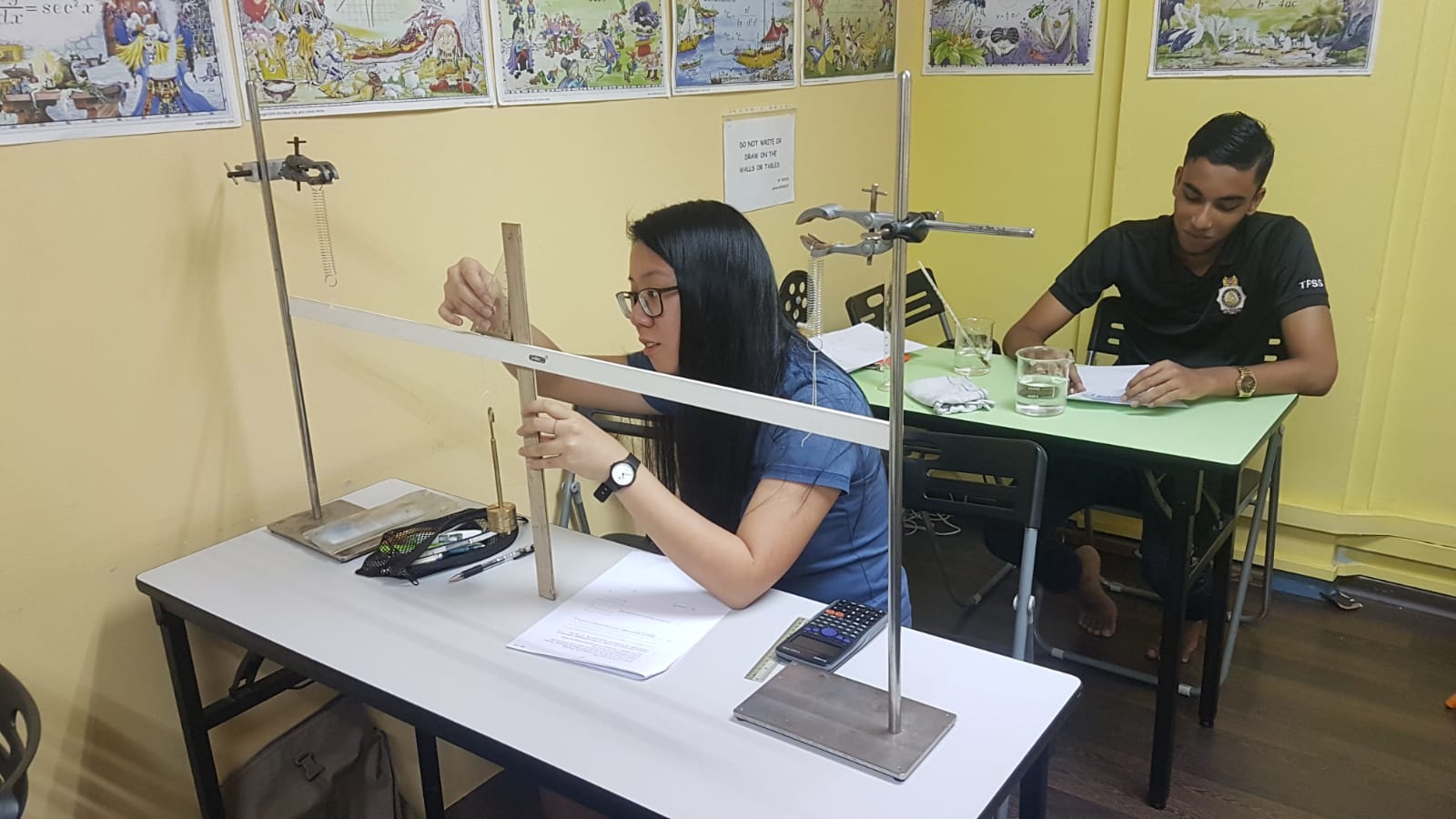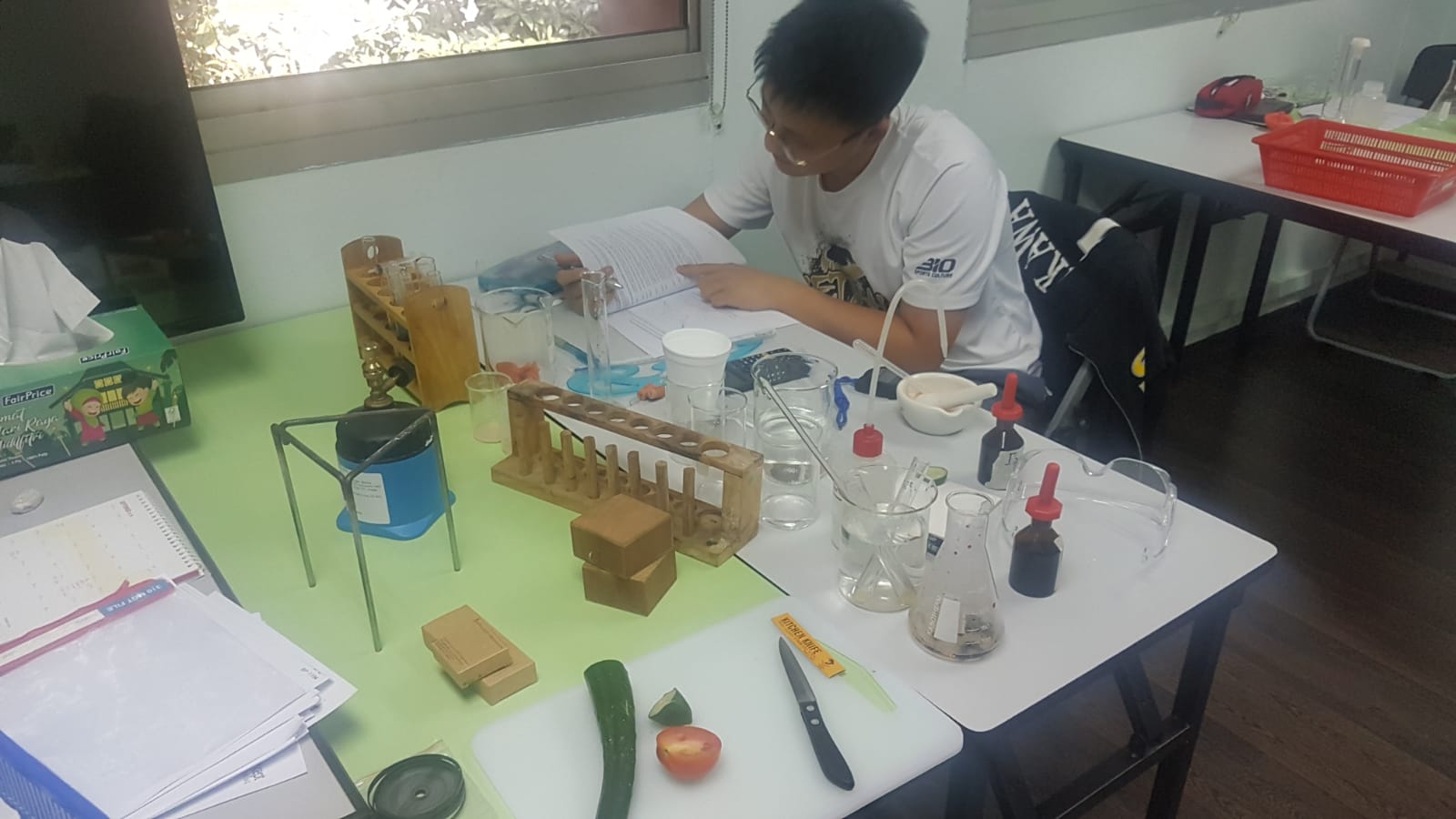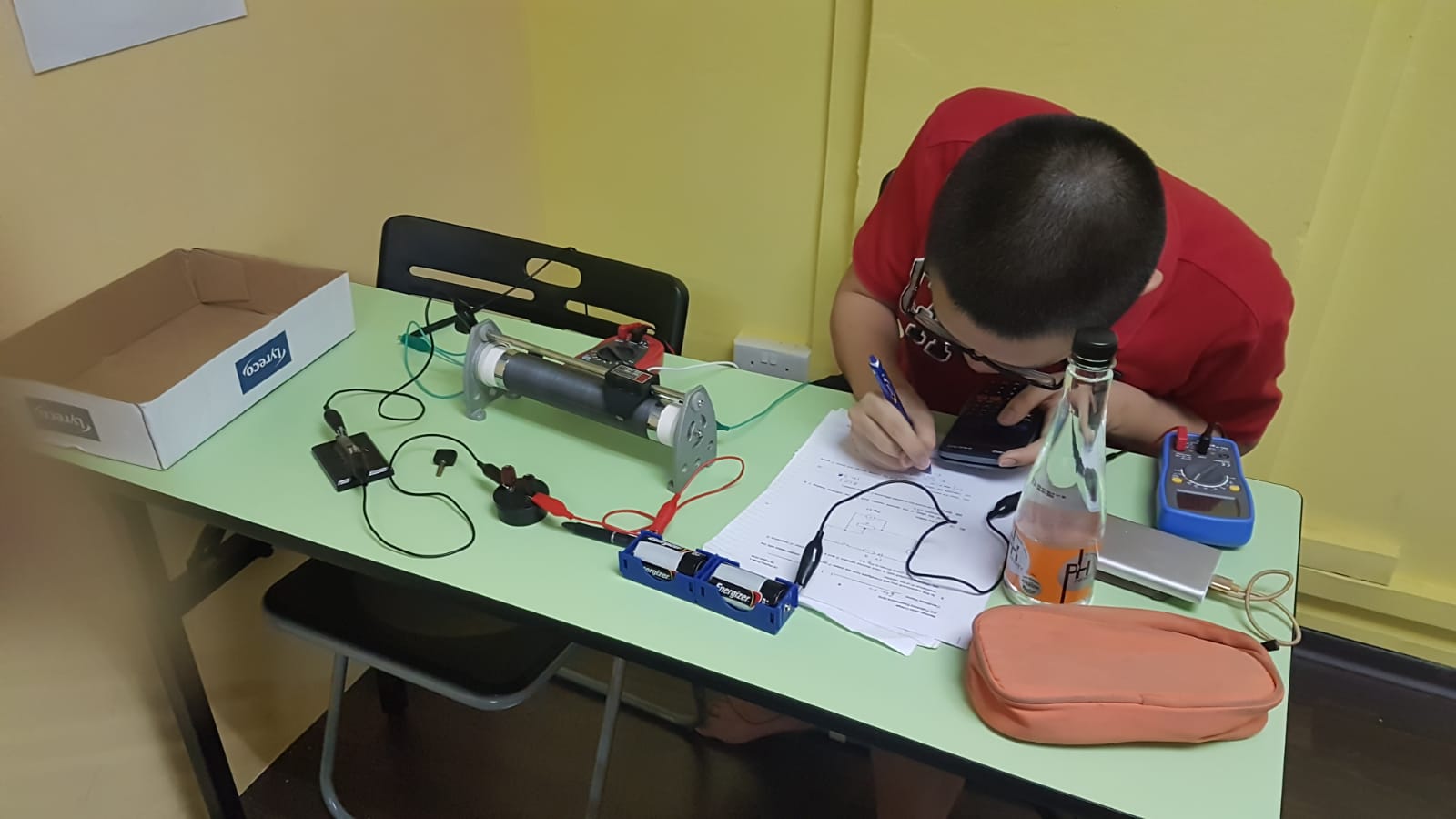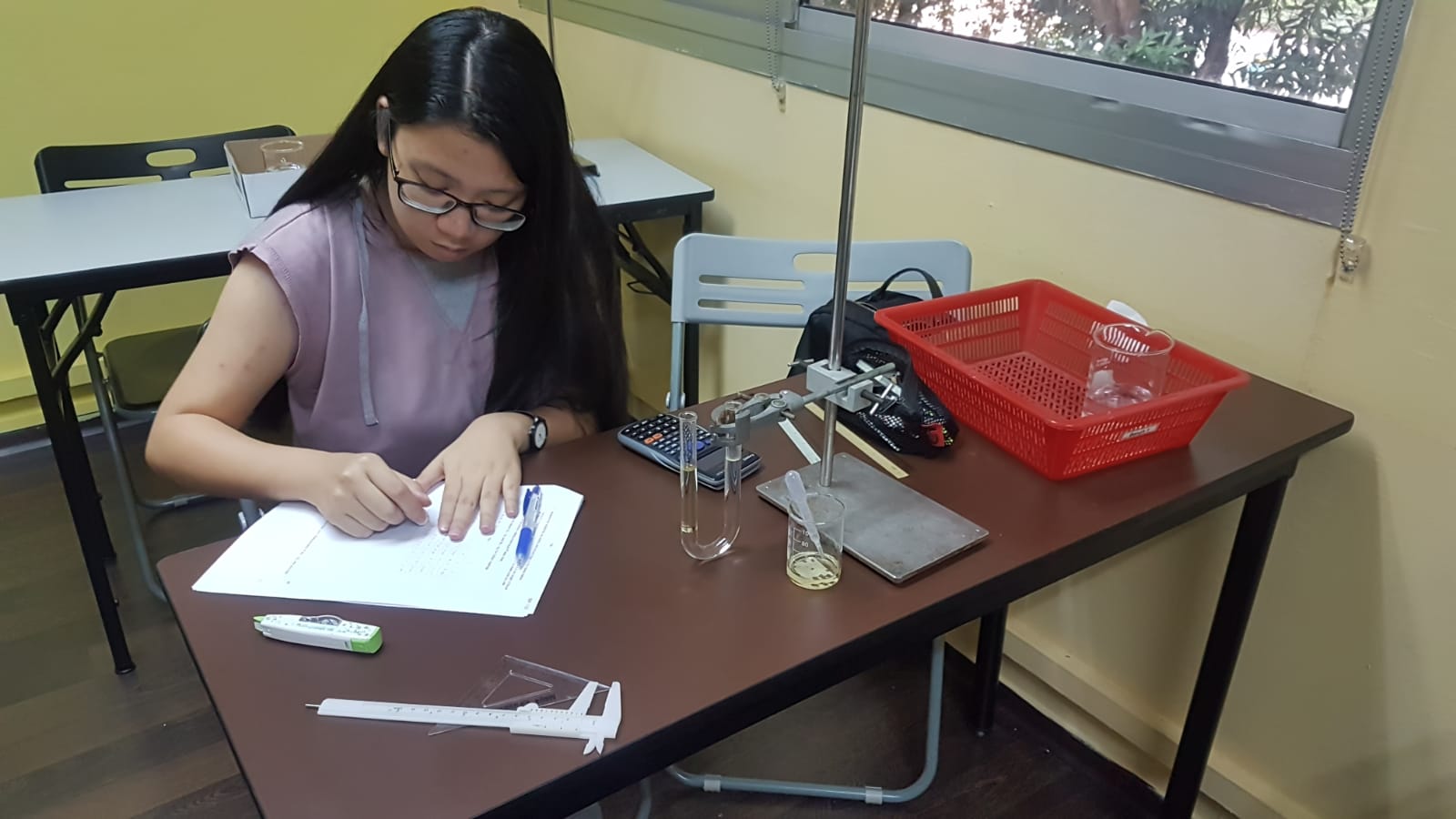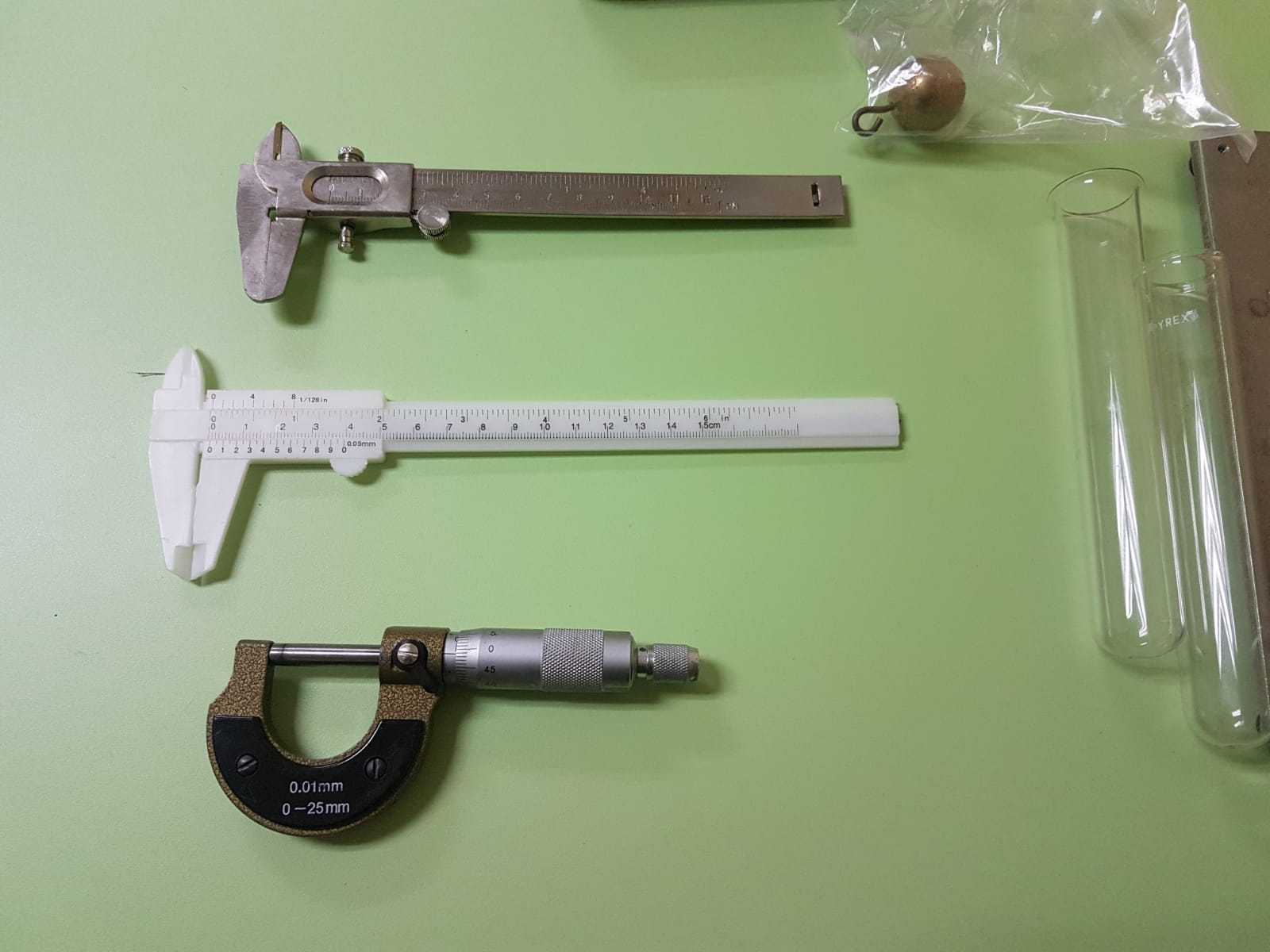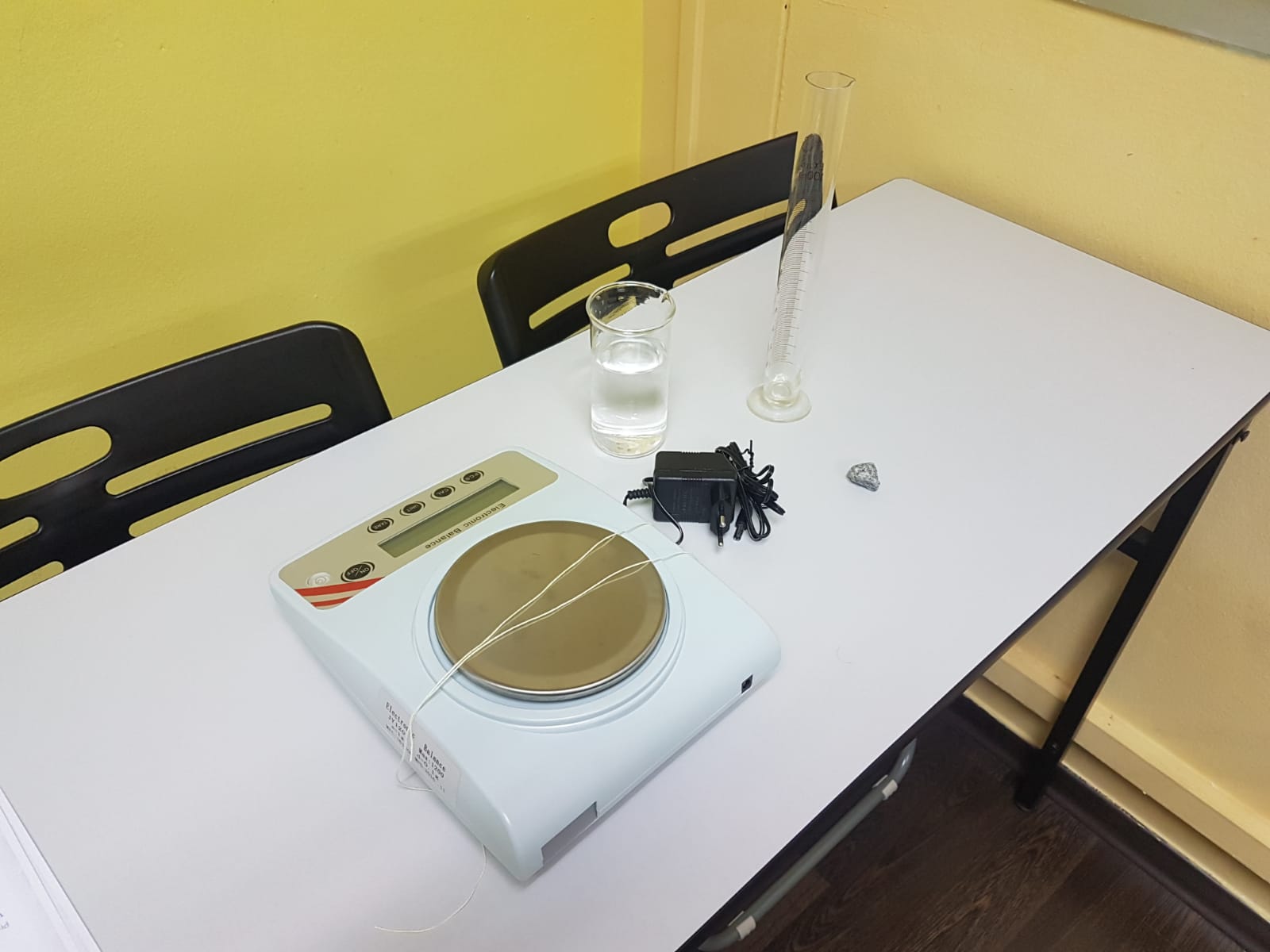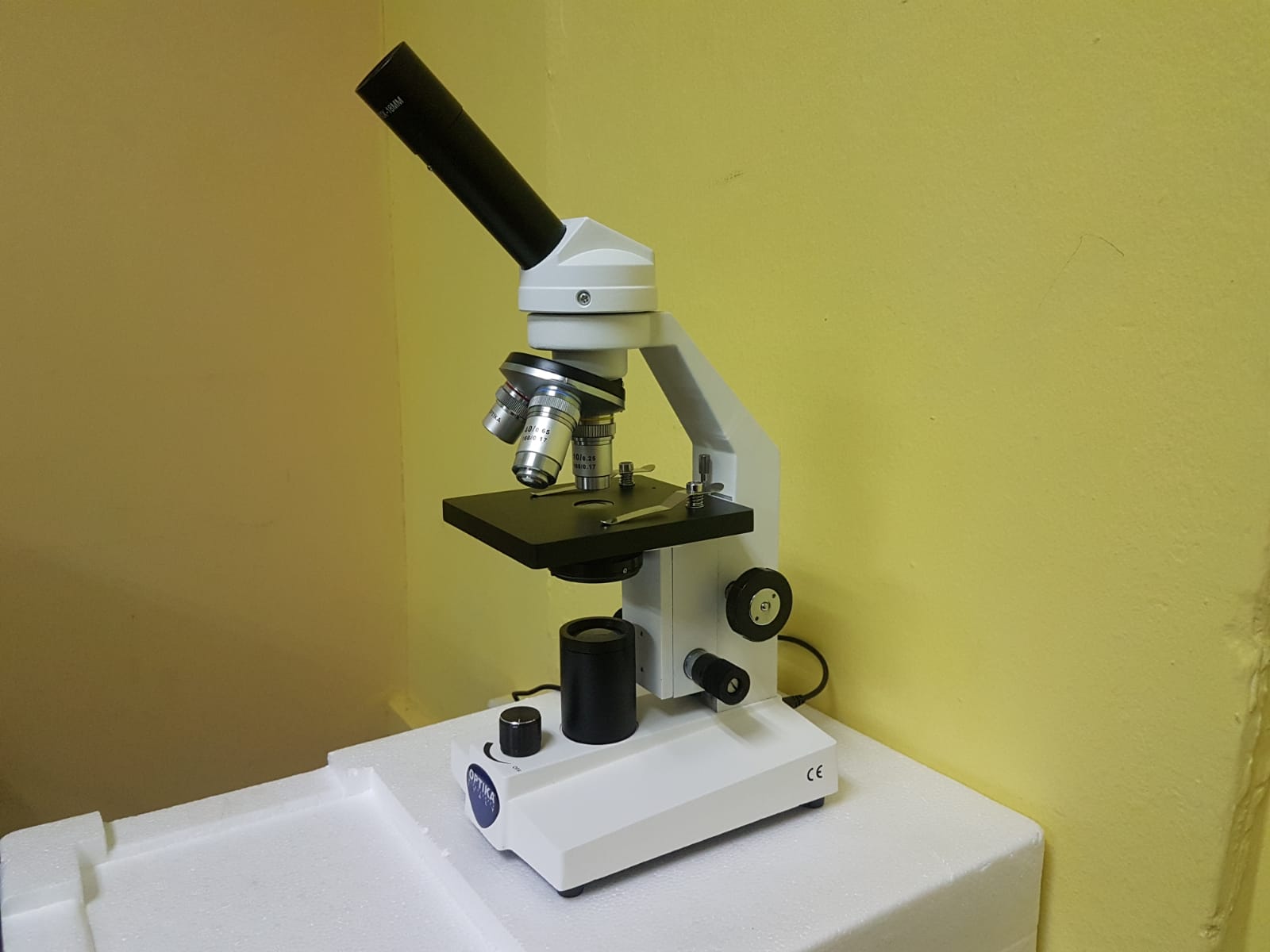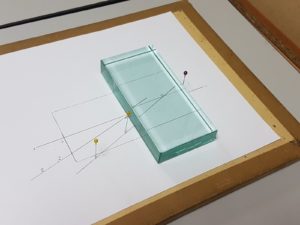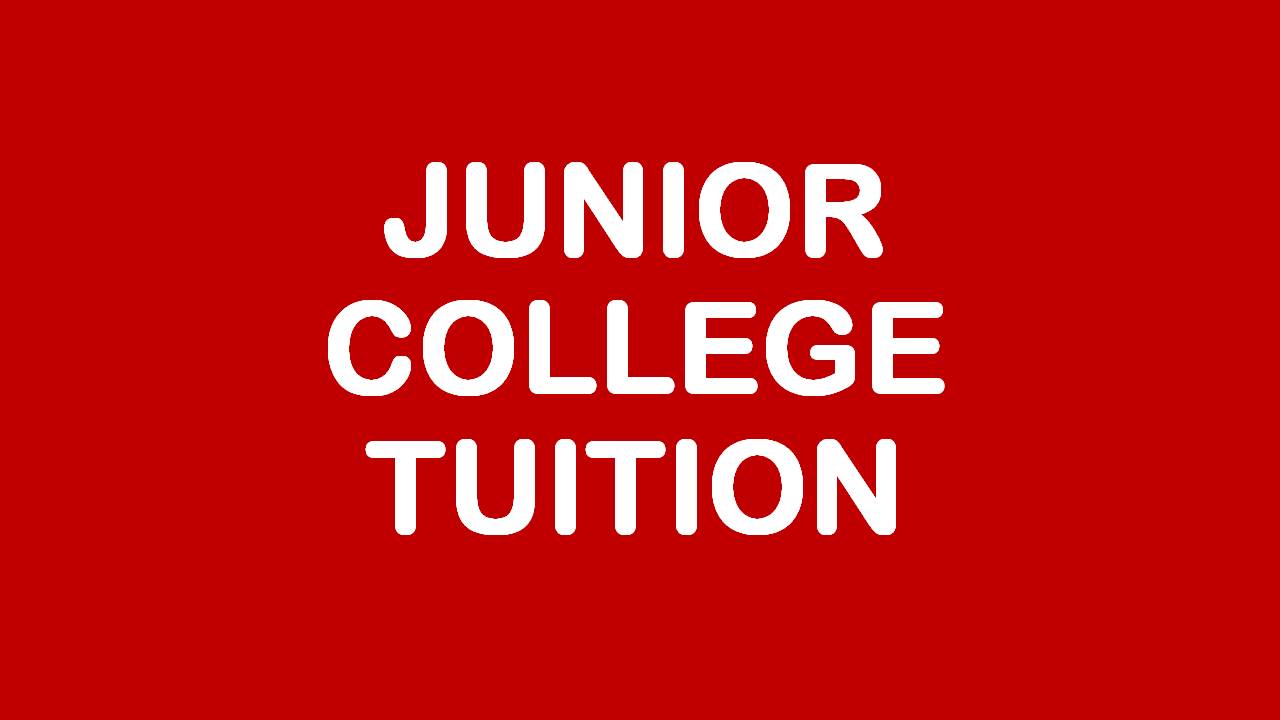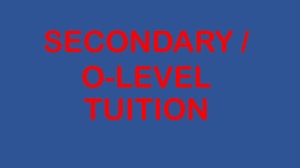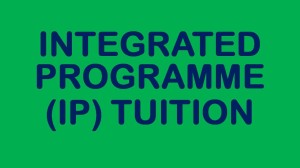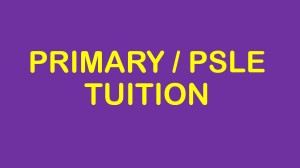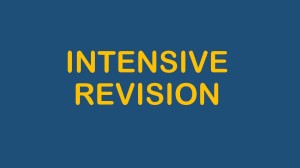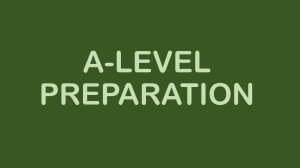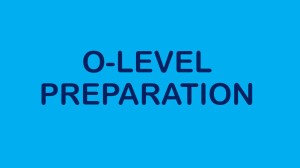I guess I have to write a bit for this group of students, who will not be allowed to redo their a-levels in their former schools (unlike students who obtained SUC for their H2 subjects), yet they’d find it difficult to be accepted into popular courses in the university.
With grades like BAD or DEAD, you might still be able to get into a local university, if you choose unpopular courses such as engineering, social work or nursing (I’m not sure if a degree in nursing is available in a local university, but if it does, you should seriously consider it). It also depends on what you had obtained your grade A for. It’s not that these courses don’t require academically bright students (can you imagine the impact to society of incompetent engineers, nursing managers or social workers?), but they are somehow very unpopular with university applicants in Singapore.
With a grade like BAD, you might even get a place in an arts or science faculty (but beware, these faculties have their pride too), and if you possess good O-Level results as well, you might even get a place in the NIE to train to become a teacher (to be admitted to NIE, you must have been at least in the top one-third of your O-level cohort; assuming NIE or MOE has not changed this requirement).
Grades like CCD or CDD might still get you into a university, for very unpopular courses. I’ve not heard of anyone getting into a uni with DDD though, or with anything lower. DEAD might get you somewhere because of the A, if there are very few good competitors for that same course. (Btw, if u obtained ACE, don’t say A,C,E, when anyone asks, just say Ace, so it sounds like AAAs). : )
So should you still accept the offer of a local uni if the course offered is not what you really want? Or should you just retake your A-Levels? If I were you, I will not retake the A-Levels if my grades can send me into any general course in an accredited or recognised university. A general course is typically one of those found in the faculty or school of science or arts. Yes, it’s ok to do an arts or science course or even engineering if you can’t get into the more popular courses such as medicine, law, accountancy and business. Why?
Please don’t forget there is such a thing as a Postgraduate First Degree, or Graduate Programs Leading To A First Degree. WHAT IS MORE IMPORTANT IS TO FIRST GET INTO ANY RECOGNISED UNIVERSITY AND WORK HARD TO GET AT LEAST A SECOND UPPER HONOURS DEGREE. Then you can apply to any graduate first degree programme. For example, if you want to be a doctor, lawyer or accountant, you can still become one if you have a very good honours first degree, through the Duke-NUS Doctor of Medicine (MD) course, SMU’s Jurist Doctor (JD) program or SMU’s Master of Professional Accounting (MPA) program, respectively. Or you can apply to any postgraduate program you like, whether it leads to a first degree, master degree or even a direct Ph.D program.
My point is, your first degree may not determine your career, and it need not be in something YOU THINK you are passionate about. It is more important to get into ANY recognised degree programme, and work very hard to achieve at least a 2nd Upper Hons degree ( I didn’t get one, so I had a hell of a time trying to get into a master degree programme. Luckily, NTU gave me a chance and I proved myself right about myself by getting a CGPA of 4.55, out of 5, for my master degree program. I’m still angry with NUS for thinking that I wasn’t good enough for their postgrad programs. Now I intend to a do Ph.D program, and it’ll be interesting to see which university would take me in).
Please also remember that some employers, like banks and the govt, will take you in if you have a very good first degree in ANY discipline. Hence please don’t be fussy about your first degree. I’ll always remember what my father told me when I asked him what course I should do at uni. He said,”Just get yourself into a university and graduate”.
Lastly, dont be fussy about your first job too. In today’s economic environment, having a job is better than having none at all.
Good luck!
Rgds,
Ilyasa
Related post: What to do if your A-level results are bad …
SCIENCE PRACTICAL TRAINING
We provide A-Level / H2 and O-Level Physics, Chemistry, Biology and Science (Physics/Chemistry/Biology) Practical Training for private / school candidates and homeschoolers, for both local (eg. H2, Singapore-Cambridge) and international exams (CIE, IGCSE). School candidates who need more FULL PRACTICAL PRACTICE are also welcome.
You may need science practical lessons if you are a private candidate who needs a science lab and apparatus as well as practical coaching, or you are a school candidate who needs more practical training or timed practice for a FULL PRACTICAL.
For details on Practical Courses, Mock Exams or Schedules, kindly click on any of the following links relevant to the exam and level you will be doing:
A-LEVEL H2 PRACTICALS
CAMBRIDGE CIE A-LEVEL PRACTICALS
Singapore Learner @ Bukit Batok
Blk 644, Bukit Batok Central, #01-68. S(650644).
Tel: +(65) 6569 4897, +(65) 87762711 (SMS)
Email: principal@singaporelearner.com
If you wish to visit us, kindly call or sms first. Thank you.
Improvement in a student’s math result …
Daniel, one of A. Math tutees, showed me his class test result yesterday: 34/40. The test was on Indices and Surds, Wow, excellent, I said to him. Daniel is from the N(A) stream, and usually fails his Math tests. That he could obtain 34/40 and top his class in just a few weeks of tuition was phenomenal. So I started reflecting on what went right, because there are many students, even those from top schools, who do not make such a giant leap in such a short amount of time.
So what was the major factor contributing to Daniel’s significant improvement? Well, it’s not some secret special technique. In fact, it’s a well-known technique that some students just don’t want to use – ask many, many questions, even “silly” ones, about the same topic until one is satisfied that understanding has been achieved. Daniel even questions me when he doesn’t understand the steps I show him, whereas many students simply copy or write down my solution. Daniel sometimes takes a while to process the information I give to him; he will pause and ponder, and then sheepishly asks a basic question. He will even ask questions periodically to affirm that his steps are correct.
Students need to make meaning out of what they hear or see; it’s not enough to just listen to teachers or observe what they do in class. And you make meaning when you have a dissonance in your mind; some pieces of the jigsaw puzzle don’t fit and you have the courage to ask and then ponder again.
Regarding asking questions, I have one advice though: you must attempt to answer your own questions first, for the struggle to answer your own questions will make it easier for you to understand another person’s explanation. : )
Good luck!
Rgds,
Ilyasa
Finance degree from SIM is still recognised …
Recently, I went to open a business account with a local established bank. I was served by a Business Banking Manager, a fresh graduate, who had worked for the bank for just 4 months! He had a finance degree from SIM.
Ok, this bank, as far as I know, is not owned even partially by the Spore govt, although its leaders have ties with the ruling elite. I’m also not sure which finance degree he obtained, as in which was the awarding university (SIM is not a university; pls don’t confuse SIM with UniSIM).
Thus the finance degree he obtained is most likely an external degree. My point is, you may still get employed by an established company if you have not graduated from any of the local universities, such as NUS, NTU, SMU or SUTD. It could well be that the finance or banking industry has its own list of recognised university degrees, such as the nursing or hospitality industries, and these degrees may even be external or distance-learning degrees.
Thus if you are interested in a particular industry, you’d need to find out which are the universities recognised by the big names in that industry.
Teaching Science to kids everyday…
Parents play a key role in getting children interested in Science. Science is a living subject that surrounds us everyday. There’s Science in the kitchen, the bathroom, the living room, in fact, everywhere. The following are some questions that children typically ask, or questions that parents can ask their children, so as to set their minds thinking:
(1) Why do metallic objects feel colder than wooden ones?
(2) Why does ice feel cold?
(3) Why is the air-con unit placed near the ceiling?
(4) Why do we feel cold just after taking a bath?
(5) Why does oil float on water?
(6) Why does ice float on water?
(7) Why do metal ships float on water?
(8) Why does the swimming pool appear shallower than it really is?
(9) How does a pair of spectacles work?
(10) How does a fan work?
(11) Why do we need to breathe air?
(12) Why do oranges and lemons taste sour?
(13) Why do salt and sugar melt faster in warmer water?
(14) What causes the tides in the sea?
(15) Why are we able to see the moon?
(16) Why do moving toys need batteries? What goes on in a dry cell?
(17) Why does food last longer when frozen?
(18) Can a see-saw be balanced when two people are sitting on it? How?
(19) Why does the swing stop after some time?
(20) ……………..
There are many more such questions that parents and children can think of. These questions have both vague, unscientific answers as well as the scientific ones. It is understandable that most parents have forgotten the correct answers to these questions, but this should not deter parents from learning with their children.
It would be a good idea for parents to buy or borrow a basic science encyclopedia to read with their children. Searching for information together on the internet is also a good joint activity between parents and children.
The true nature of Science is learning by thinking and exploring, observing and experimenting, making many errors along the way. It is this spirit of thinking and persistence that gives us many of the useful things that we have today, like electricity and aeroplanes. Teenagers can certainly afford to spend some time thinking about how computers or hand phones work, instead of just using them.
Ilyasa, M.Ed, PGDE, B.Sc, ex-sch teacher.
Teaching Math to kids everyday ….
I believe the human brain has a math processor that needs to be activated and nurtured regularly. Again, parents play an important role in making a child comfortable with numbers and calculations. The following are some concepts in daily life that deal with math:
(1) Time: Parents can ask children to add hours and mins to the current time to arrive at a specific time for some activity. Alternatively, give the child a time problem that he needs to solve by working backwards. For example, “if we want to reach the shopping mall at 5:15pm and we take 40 mins to get there, at what time should we leave the house?”
(2) Money: Counting money, calculating change (remainder), determining the price after discount, budgeting and calculating profit or loss are some of the mathematical activities that we may encounter daily or weekly.
(3) Shapes and figures: In toys, art and household furniture there are shapes and figures for children to think about. How about the area and perimeter of such shapes? How about the volumes of some 3-D figures? The concepts of proportion, similarity and congruency can also be discussed when observing shapes. For example, two dining table chairs are congruent. A baby elephant and a mother elephant are similar but not congruent.
(4) Lines and gradient: Look around us and we can see many parallel lines, intersecting lines and perpendicular lines. How about the slope (gradient) of a road outside the house? The steepness of a staircase?
(5) Distance and speed: What is speed? How is it determined? Observe walking speeds, cycling speeds and the speeds of vehicles. While taking a taxi, estimate its average speed and take note of the travelling time. Estimate how far the taxi travelled.
(6) Statistics: In the newspapers we can find pie charts and bar charts, and the terms “average” and “mean”. What do the charts show and what do these terms mean? Even young kids can interpret pie charts. Parents can relate pie charts to cutting a birthday cake.
There are many more examples of mathematics in daily life. When children understand cost price, selling price, revenue and profit, they are on their way to understanding business and the economy. Entrepreneurship can then develop from there.
Ilyasa, M.Ed, PGDE, B.Sc.
Should N-Level graduates opt for the direct poly route?
From 2013 onwards, top N-Level graduates can go to polytechnics without first having O-Level certificates, either by undergoing a one-year foundation course in the polys for the top 10%, or by doing a Higher Nitec course at the ITE for the next top 20% of their N-Level cohort.
So would it be a wise choice for an N-Level grad to opt for direct entry into a poly, instead of first sitting for the O-Levels? Well, in my opinion, with regard to certification, they face about the same problem as top Express stream students when deciding whether to choose an IP programme or enrol in an O-Level sec school.
An IP student who fails his A-Levels only has a PSLE cert to show, which, despite all the stress it causes, counts for next to nothing. If an N-Level holder fails to get a poly diploma, he would have only his N-Level cert for employment purposes (still sounds better than just having a PSLE cert right?). But I believe many jobs today require at least 3 or 5 O-Level passes. So I think it’s still wise to have an O-Level cert.
However, the O-Level route is a very academic one, and may not suit all N-Level grads, especially those who are weak in English and Mother Tongue. But having a good O-Level cert also allows a student to enter a JC.
So, I think, in the final analysis, whether or not a top N-Level grad chooses to bypass the O-Levels in his quest to enter a poly should depend on whether he believes he can do well in the very theoretical and academic O-Level programme. I’m certain the poly foundation program or the Higher Nitec course has a more hands-on approach to learning and solving problems.
Ilyasa
Related Articles:
O-LEVEL EXAM PREPARATION FOR PRIVATE CANDIDATES
List of Top (Academically Very Good) Secondary Schools in Singapore …
This is just my informed opinion.
[I] = Independent; [A] = Autonomous; [SAP] = Special Assistance Plan; [IP] = Integrated Programme.
NAME OF SCHOOL (GCE O-LEVEL BAND IN 2010) [Type of School]
Anderson Sec (1)[A]
Anglican High (1)[A, SAP]
Anglo-Chinese (Independent) (NA)[I, IP]
Bukit Panjang Government High (1)[A]
Catholic High (1)[A, SAP]
Cedar Girls’ Sec (1)[A, IP]
CHIJ Sec (Toa Payoh) (2)[A]
CHIJ St. Nicholas Girls’ (1)[A, SAP]
Chung Cheng High (Main) (2)[A, SAP]
Chung Cheng High (Yishun) (3)
Commonwealth Sec (3)[A]
Crescent Girls’ (1)[A]
Dunman High (NA)[A, SAP, IP]
Hwa Chong Institution (NA)[I, SAP, IP]
Maris Stella High (3)[A, SAP]
Methodist Girls’ (1) [I]
Nan Chiau High (2)[SAP]
Nan Hua High (2)[A, SAP]
Nanyang Girls’ High (NA)[I, SAP, IP]
National Junior College (NA)[IP]
Raffles Girls’ Sec (NA)[I, IP]
Raffles Institution (NA)[I, IP]
River Valley High (NA)[A, SAP, IP]
Singapore Chinese Girls’ (1)[I]
St. Joseph’s Institution (2)[I]
Swiss Cottage Sec (3)
Tanjong Katong Girls’ (2)[A]
Tanjong Katong Sec (2)[A]
Temasek Sec (3)[A]
Victoria (1)[A, IP]
Xinmin Sec (2)[A]
Zhonghua Sec (2)[A]
*To find out important details of a particular school, such as the median PSLE aggregate of it’s sec 1 cohort, click on School Information Service.
If you are already in these schools, don’t be arrogant, don’t be complacent; you still need to study hard and intelligently. Good luck. : )
Related articles/posts
(a) Beware the critical years in math education in Singapore.
(b) Not all IP students make it ….
(c) Sec 1 (2013) Algebra Headstart Programme in Nov/Dec for post-PSLE students
(d) List of ‘Top’ Secondary Schools in Singapore by median PSLE score (2011) of their Sec 1 cohort
Good Luck,
Mr Ilyasa, M.Ed., PGDE, full-time tutor (h/p: 97860411)
_______________________________________
TUITION CLASSES:
_______________________________________________________________
EDUCATIONAL SERVICES:
______________________________________________________________
By EX-MOE TEACHERS & EXPERIENCED TUTORS
@ BLK 644, BUKIT BATOK CENTRAL, #01-68. S(650644).
CALL 65694897 OR SMS 98530744 OR 97860411.
PAVED WITH GOOD INTENTIONS (by Colin Goh & Joyceln Woo)
PAVED WITH GOOD INTENTIONS:
How living in New York has illuminated for us the difference between the Singaporean Dream and the Singaporean Plan
By Colin Goh & Joyceln Woo Yen Yen
Former lawyer turned writer/cartoonist Colin Goh and educator Joyceln Woo are married and have been living in New York for the past three years.
COLIN & JOYCELN: We fell in love and in June 1998, we got married – true Singaporean style. The studio photography, the clothes, church, the dinner and the hundred of guests that we had never met before. What happened to us after that was not so typically Singaporean. Here are our stories.
JOYCELN: As a child, I could never sleep the night before the first day of school. The night before my first day of teaching was no different. I didn’t know what to expect but I knew that I was going to help kids learn, be the best teacher, and make a difference.
At my first staff meeting, the principal screened an image familiar to all new schoolteachers – the Prism. Like a magical crystal ball, the Prism told many things. It could predict how well students entering secondary school with 4 subjects at PSLE would do for the ‘O’ levels. With the Prism, we could evaluate each student’s potential grade in literature based on his/her PSLE grades and then tell if our school had “added value” to the child’s education.
Looking into the Prism, the principal announced that while she was concerned about the various aspects of development – Intellectual, Aesthetic, Moral, and Physical – “This year, our school will focus on the Intellectual.” By this, she meant that as teachers, we should all ensure that we stretched the potential of the students so that they performed “better than expected” at the ‘O’ levels. I noticed in the subsequent years that we never decided to focus on any other aspect of development. There was never an Aesthetic, Moral or Physical year.
The conversations in the staff room educated me considerably about the concerns of teachers.
“Oh, I heard you bought the new condo in Bukit Batok, that’s a good investment…”
“So which piano school are you sending your child to now?”
“Do you want to go buy diamonds with us, we are going to buy diamonds this afternoon.”
In my naïveté, this came as a shock. Why weren’t teachers talking about helping students learn or improving instruction?
And when they WERE talking about improving instruction, it was invariably:
“So what questions do you think will come out for this year’s ‘O’ levels?”
“Yes! Yes! I spotted the right questions!”
“You have to make sure your students write 5 ‘compositions’ and do 5 ‘comprehensions’ this semester.”
And when questions were asked, the answer was inevitably “Can’t change. That’s what the principal wants to see.”
The culture in the staff room was a mix of different groups:
· the Tai-Tais, women who had married well-off husbands, and who admired, respected and competed with each other for their Ferragamo shoes and Louis Vuitton bags.
· the few unmarried men who were mothered by the Tai-Tais as they were regarded as “good” men (i.e. hardworking and honest) but ironically insufficiently compelling marriage material (for why on earth would a functioning, virile, desirable man become a teacher?).
· the married men who usually lived in HDB flats (unlike the Tai-Tais and their non-teacher husbands), who generally kept to themselves.
· the older single women who were diligent in ensuring that all forms are handed in on time and helping students who need extra help get the preferred grades. They were usually more conservatively (and cheaply) dressed, and did not generally interact socially with the Tai-Tais.
· the expatriate teachers who were generally avoided by the other teachers and not expected to do very much because they either could not be trusted to do the work, were too difficult to communicate with, or were too troublesome to work with. And when they got together, they made plain their disdain for Singapore and its school system of which they were a part. Stereotypical as it may sound, those I’d met had invariably come to Singapore either to heal from a broken marriage (in which case, getting involved with a local woman usually came with the package), or had fled an unsuccessful career so they could return home and say, “I spent a few years in the Orient.”
· And the young teachers, bright-eyed and bushytailed, who believed they could make a difference, and who usually started out immensely popular with the students. They organized extra activities which they were not required to do, sat with students for long hours when they had problems, and generally tried to innovate with teaching. The Tai-Tais usually tried to matchmake the young single female teachers with single men they knew, but never the single male teachers. Seasoned teachers generally sat back and placed bets on when the neophytes would eventually burn out.
I didn’t know a single lazy teacher – everyone was extremely hardworking, taking work home, often physically running around as they hurried to different parts of the school. The teachers hardly had time to rest and reflect. It was as if we had been trained to work hard, but not to think.
What unites Secondary 4 teachers is the common goal of ensuring their students score well in the ‘O’ levels – preferably better in the subject that they teach rather than in another subject. Success is defined largely in terms of how many As produced in their class.
I remember one year distinctly – the school had done well in history and the Sec 4 history teacher was jumping up and down in glee, like she had won a war. On the other hand, the students hadn’t done as well in literature and the teacher was walking around with her head down, wishing that the bulletin board with the results didn’t place the teacher’s name next to the results of each class. While everyone congratulated the history teacher on doing well in spotting the right questions, we all didn’t know what to say to the literature teacher. We sort of patted her shoulder as if someone had died.
And for non-Sec 4 teachers, our overriding concern was assigning the required number of tests and exercises and grading them. Each semester, all our students had to submit binders containing their completed and graded assignments. And each semester, the teachers would spend several days of class time ensuring that the students had everything in place, as the submission of completed binders were a factor in a teacher’s evaluation. The binders would disappear for months because it would take the Head of Department that long to go through the binders and count how many assignments had been completed. It didn’t seem to matter if the teacher had taken 5 minutes to grade each composition or 30 minutes to make sure that the students received meaningful feedback. What was important was that the assignments were there.
I felt both angry and guilty that my idealism constantly came up against so many artificial obstacles. I felt that the obsession with bookkeeping and papering over any mistakes, real or perceived, allowed neither time nor space for innovation. Further, the mania to deliver standardized results trumped the notion of harnessing individual potential, of the teachers and the students.
Worse, I felt I could not raise these issues. There was a culture of silence.
My experiences are not about bad principals or teachers in particular. It is about ways of being and seeing that represent to me, the Singapore legacy that I have inherited. The principals and teachers that I talked about are not to blame individually – it is just so difficult to be and to see otherwise in the busy-ness, routines, and duties of our everyday lives.
I decided to leave to pursue graduate studies. Teacher education in Singapore is tilted more to the vocational than the intellectual and I wanted the space, time and knowledge to help me articulate and frame what I was thinking and feeling. On a more pragmatic level, I knew that nobody took the feelings of groundling teachers seriously and that people would probably listen to me more if I had a doctorate. I was disappointed, but still hopeful.
COLIN: I remember my first visit to New York. I had just graduated in law from University College London, and had several months before I was scheduled to take the English bar exams. Where most of my friends had chosen to do attachments with Singaporean law firms with the prudent aim of acclimatizing themselves with the career-to-come, I was paralysed with a single, terrible thought: “These are the last few months I’ll ever have to indulge my youthful passions.”
In an impulsive moment, and much to my parents’ annoyance, I blew every last cent I had and wangled myself a place in a cartooning course at Manhattan’s School of Visual Art. I had been cartooning for The New Paper for several years by then (my comic strip The Concrete Jungle continues to run in their august pages), but had no formal training.
I chose Manhattan because it was supposed to be the cynosure of the creative world, and most important of all, where Marvel and DC Comics had their headquarters. Where else would one study cartooning but in Spiderman’s territory?
Those few months were the most mind-blowing of my life. By day, I was either sequestered in a musty studio sketching Brazilian women or wandering the varied New York neighbourhoods. By night, I hung out with the other residents of the international hostel I was staying at – a diverse crowd of students from Argentina to Kazakhstan and everywhere in between. I had always thought Singapore to be a model of diversity and cosmopolitan progress, but over countless milkshake-fueled discussions in East Village hangouts, I felt like the proverbial mountain tortoise.
It was also the first time I began to question the path I was about to take. I was meeting people who were taking chances and simply following the dictates of their passion, whether it was art, dance or securities.
I had studied law largely because it was often cited it as the next best thing after medicine, which I knew I’d be awful at. Besides, SM Lee was a lawyer. What better endorsement could a Singaporean have? Despite being a published cartoonist and writer by then, I never thought about a career in the arts. It was a completely nonexistent option.
What was worse was that my parents never forced me into law. I just read their minds, I guess. Besides, all my friends seemed to be doing it too. It was the Singaporean Dream.
I also remember in my first year in law school, my parents telling me about SM Lee’s now seminal “If I were an undergraduate” speech, where he told JC students that were he a student now, he would not study law; he would be an engineer, join the civil service, then obtain an MBA and thereafter enter the private sector. SM Lee had switched from Coke to Pepsi. There was a New Dream.
For a moment, I thought, well, if I’m yesterday’s man, I might as well deviate from the path altogether. However, that year, the Singapore government decided it had too many lawyers and restricted the number of recognized overseas law schools. A rumour began spreading amongst the legal undergrad community that it wouldn’t be long before they didn’t recognize British qualifications altogether. We had to hurry and enter the Singapore workforce as soon as possible, before we were shut out. (As we now know, the rumour was unfounded, and Singapore now admits it needs more lawyers.)
Nevertheless, out of prudence, I shelved any thought of changing fields and became a barrister, then an advocate and solicitor of the Supreme Court of Singapore.
I joined a large law firm, again largely because it was commonly believed that it was good to bloody oneself in the trenches of the giants. I practiced shipping law, again an extremely prudent choice, what with our being the world’s busiest port. Further, it was perceived as exciting because shipping lawyers often had to go out to sea to arrest ships. (In truth, arresting ships is not vastly different from what loansharks do when they hang pig’s heads on debtors’ doors.)
I had a decent, almost enviable, income. I had to keep telling myself that, because the lifestyle was neither decent nor enviable.
Clients called me at 2 am in the morning. The High Court Registry nicknamed me “Mr. 5 O’Clock” because I regularly filed papers right under the guillotine, never of my own volition. My only pleasure was catching up on industry gossip while waiting in line to argue before the court registrars. There was not a single Chinese New Year holiday where I would not find myself in the office. My parents only caught fleeting glimpses of me early in the morning when I rushed to work, or late at night, when I stumbled in, surly and mentally exhausted. I saw Joyceln, then simply my girlfriend, for a few precious, stolen hours on Sundays.
But I had the job, and more important, the income. They brought me a measure of social acceptability. Parents’ friends would nod approvingly, non-lawyer friends would remark how much lower their salaries were. I made enough to afford membership in a club I never had time to step into, and for season parking in town. I had credit cards and designer ties. I could share war stories about work that might have seemed glamourous to non-lawyer friends, weaned as they were on a diet of Ally McBeal. I was in the secure embrace of the Singaporean Dream.
My epiphany came as I was descending the gangway of a very large oil tanker. At a height of ten storeys or more, the gangway abruptly slipped its moorings and fell several feet. I found myself in mid air for several terrifying seconds. Luckily the crew managed to secure it again. As I retrieved my dropped manhood, I saw bits of the vessel fall into the sea below. If I had not held tight to the chains, I would be dead.
When I told my colleagues about it, no one batted an eyelid. It was simply one of the hazards of the job, like the long hours and the symbolic fellating of clients. Some even quipped, “Who says law isn’t exciting?” But working late that night in the stale air of my office, surrounded by musty documents and lit by the sickly iridescence of my computer monitor, I knew I had to get out.
My brush with death made me reflect on my life, as I suppose all encounters with the reaper must do. I realized I was unhappy. Not weeping-and-gnashing-of-teeth unhappy, just that dull ache of uninspiration. Yet, on paper, I should have been completely content.
My conviction was reinforced when I passed my boss’s office and saw her toiling away. Much more senior, she was still keeping the crazy hours of a junior lawyer. She had a brilliant mind, equity in a giant and prestigious firm and a sizeable income, but I realized that I didn’t aspire to her lifestyle. And she was by no means unique. If I did not aspire to be my boss, then what was the point? My life stretched before my eyes, and I did not want to take another step in its direction.
I then made a classic Singaporean evaluation: if I’m going to suffer, then by god, I’ll suffer for more money. I figured American lawyers make the most money, so that’s where I’ll go. I decided the fastest way to do this would be to do a one year Master’s degree, preferably in an Ivy League university, since it would provide me ingress into the American market.
I spoke to Joyceln, and told her that the only place I wanted to go was New York, because I wanted to recapture a little of that energy I had felt years ago. Despite some reservations (New York has a not wholly undeserved reputation), we both applied to Columbia University, New York’s only Ivy League university. Miraculously, we were both accepted.
We quit our jobs, got married, emptied our bank accounts and left immediately.
JOYCELN: When applying to do my doctorate at Columbia’s famous Teachers College, I spoke to several professors at the only education institution in Singapore to find out about possible financial support. I had intended to study curriculum and technology, and felt my experience teaching as well as a stint designing educational software in an IT firm would be valuable.
However, the door was abruptly slammed in my face when I was told over the phone, “If you are not in computer science, and not a first class graduate, there is nothing we need to talk about.”
Perhaps spurred by anger, I worked like a demon at Teachers College and earned several academic awards, including a doctoral research fellowship which covered both tuition and a stipend, and came unencumbered by any bond, moral or otherwise. The myopia with which I had been treated had ironically turned out to be a blessing.
I even met with our Education Minister when he visited Teachers College. Of the questions he asked me, two stood out: “When are you going back to Singapore?” and “When are you going to have babies?” It hit me that I had never spoken to the Minister when I was teaching in Singapore. I wondered: am I valuable to the country only after I leave?
COLIN: Armed with a Masters from Columbia Law School and the grandiose title of “Harlan Fiske Stone Scholar” which Columbia had over-generously bestowed upon me, and having passed the New York bar exams, I knocked on the doors of some of the largest law firms in the world.
I recall one battery of interviews being carried out in a large hotel, where prospective lawyers would shuttle in and out of the rooms, each occupied by interviewers from the firms.
A fellow prospector asked me, “Which other profession requires you to shuttle from hotel room to hotel room?”
“Prostitution,” I remarked, and we both laughed.
It proved a prophetic statement, for when touring the offices of prospective firms, instead of feeling pumped, I felt horrified by the all-too familiar office layout, the mounds of paper spilling onto the floor, the designer suits thrown over the backs of chairs.
The last straw came when a partner of one Midtown firm patted me on the back and said, “I think you’d be perfect to help work on our port project out in Saudi Arabia!”
It suddenly hit me that I was not embarking on real change at all. I was merely rearranging the furniture. Like a good little boy, I had made all the pragmatic, sensible decisions… and it was about to push me into the abyss. I was still trying to achieve the Singaporean Dream, except overseas, and on a larger scale. Well, not exactly…
It was then that I understood the difference between the Singaporean Dream and the Singaporean Plan. And what is the difference?
I suppose the Dream has to be one of searching for peace and the liberty to conduct one’s life as one sees fit.
That’s probably what my ancestors sought when they left China: the governments of the Ming and Manchu were ruthlessly restrictive of cross-border commerce, the lifeblood of my ethnic Hokkien and Teochew forbears.
And no doubt it was the Dream, fueled by hard work and courage, that has made Singapore the indisputable commercial success it is today. And our story is a wonderful one: the Little Island That Could.
However, invariably once people attain success, they start to canonize the steps they took to achievement. This is how Dreams become Plans, and how one hegemony replaces another: the search for peace and liberty becomes get into a good school, then a good university, then a stable job, then buy property and stock. The problem is, then what?
There is nothing inherently unique about the Singaporean Dream. The American Dream of life, liberty and the pursuit of happiness is substantially the same. (And especially in the upper middle class, the American Dream is fast becoming a Plan too: prep school, Ivy League, Wall Street.)
But what to me gives America more hope is that they still celebrate mavericks; they may never find happiness, but their liberty to pursue it is sacred.
My experience in Singapore was, however, very different. There were always people telling you what and how you should do things, and imposing penalties for deviation. There were ‘right’ schools, ‘right’ professions, ‘right’ strategies.
Of course there are those who would argue that ultimately, the choice is one’s own and that there is nothing to prevent one from doing what he or she wants in Singapore. After all, isn’t it one’s fault for caving in to peer pressure? I would humbly submit that while theoretically true, such an argument betrays an ignorance of the combined workings of hegemony and power.
The issue is how expansive the reigning ideology is. In Singapore, the dominant view is to do whatever works (whatever that may be, and regardless of who it worked for). In New York (I won’t pretend that America is homogeneous), the prevailing view is that everyone should find what makes him or herself unique, and capitalize on that.
Manhattan is smaller than Singapore, yet there is space for both Wall Street Wizards and Alphabet City Shamans to coexist. Despite occasional border skirmishes, there is recognition that the city would be a lot poorer if everyone marched to the same drum.
An overly romantic myth? Perhaps. But that such a myth could persist in a hostile and cynical environment like New York, was encouraging to me. And anyway, the ‘fulfillment’ promised by the Singapore Plan was equally illusory. In a competition of myths, I chose the one that gave the most latitude to one’s passions over the one that indulged one’s fears.
JOYCELN: I think the most striking thing about New York is that so many people here are in transition. They don’t know where they are going to be or what they are going to be doing in 6 months’ time. But they are all working towards their individual dreams, in their own individual way, and not according to some mandated blueprint or destination.
The receptionist in my building is also an actor. I recently met a waitress who was a graduate student in philosophy. I have classmates who are not only still at work, but who also shoot films whenever they can.
Until New York, I didn’t know I could be poor and still volunteer to help others who are more needy than me – not tomorrow, or next year, or when my income reaches a certain level, but today.
I now tutor the children in my neighborhood who need help but can’t afford to pay. I didn’t know how great it feels to be able to write, and express my anger, worries, and joys. I didn’t know that if I am dissatisfied by policies, I can get together with others to express it.
Just last week, there was a public school that was boycotting a state-mandated test because the test was taking away precious instructional time. What a novel idea! I didn’t know I was not alone, that there are other Singaporeans who think like I do, who want to make a difference but who are afraid and are so used to being silent.
COLIN: The insidiousness is this: in adhering to the Singaporean Plan, I was acting pragmatically, but ultimately, dishonestly.
As late as the interlude between pupilage and practice, I had written a play that was performed for the Singapore Arts Festival Fringe, for which the British Council had sponsored me to attend the Royal Court Theatre in London’s prestigious theatre school. Further, throughout my years of practice, I also managed to continue cartooning The Concrete Jungle. While I enjoyed writing and drawing, never for a second did I think this might be a career. Worse, I felt compelled to downgrade their importance in my life. First was money, then pleasure. It was simply un-Singaporean to think one could get pleasure without money, or that working should be pleasurable.
But now I refuse to postpone my dreams any further, and shelve them under some misguided notion of pragmatism. How often was I told as a child by my elders, “wait till you grow up,” “wait till after exams”, “wait till after you graduate”. I do not desire to wait until I retire. I might not make it that far. I refuse to be a walking mid-life crisis in the making.
But living one’s dreams is difficult because it is a lone undertaking. There is no such thing as shared dreams; they are personal creatures. And while my peers are making partner and buying cars, I live in rented student accommodation and scatter my work to the ocean of publications, hoping for a bite. Thus far, I have only been published a couple of times, far from being enough to pay the rent. Yet I do not feel despair. Trite as it may sound, I recognize that life is about the journey, and not the destination.
JOYCELN: In Singapore, a considerable amount of talk in education has been about continuing to be competitive in the global marketplace. Singapore seems to have done well in this respect – we have consistently come in first in the International Math and Science Study.
But in tandem with the fear of losing out on notional global competitiveness is the willingness of many educators, policy-makers, and parents to “train” the young to delay their dreams, desires and play for a future goal, to “wait till after you finish your homework,” to “wait till after the exams” while at the same time plying them with material bribes.
On the global front, it is ironic that the US is trying to emphasize academic standards while Japan, who also finished in the top ranks of the International Math and Science Study, is trying to cut down on the curriculum to allow more time for play. Both cite global competitiveness as their reason for doing so. One wonders as a country, whether we are listening to the everyday experiences of our own children, parents and teachers, or simply responding to some speculative construction of what is needed to be competitive.
Can anyone say for sure what’s needed? Only a few months ago, countries cried out for schools to produce more dotcommers. A look at the rollercoaster line that is the NASDAQ should be cause for circumspection.
There are signs that children in Singapore are straining under this ethos. Recent newspapers reports have reported that parents are spending an inordinate amount of money and time to send their children for after-school tuition so that they can achieve better results; scoring high marks in tests and exams have been found to be a top concern for students; the average 10 year-old has been found to spend 6 hours in school and up to 8 hours on homework and tuition each day, and, students have been reported to experience physical reactions such as diarrhoea and asthma attacks during or just before exams. Is this education, or child labor? Has scoring well in tests become the reason for tests themselves? How do teachers, parents, and teachers begin to imagine our lives differently?
COLIN: I think it is important not to wholly discredit the Singapore Plan. It worked for some and may yet work for others. However, it is also true that the road to hell is paved with good intentions and that it is always an error to confuse what is with what ought to be.
JOYCELN: Consider these 2 stories. Which is closer to yours?
You wake up everyday and work from Monday to Friday, and often, Saturday too. If you finish work early, you and your partner go to your parents’ place for dinner and see your child for a few hours. If you work late, you buy a packet of char kway teow from the hawker centre but eat it at home because it’s too warm to eat there. You’re not crazy about the job but you know that if you keep at it, you can afford a car in 3 years’ time, and in 5 years’ time, buy a condo close to the primary school you want to send your kid to. Your conversations with people are either for the purpose of networking, work, or for familial obligations you cannot avoid. On weekends, you play golf with your friends at your country club or watch a movie with your partner. Once a year, you go on a ten day vacation to New York, London, or Paris, and when your children are big enough, Disneyland.
Alternatively, you wake up and you have no idea what is going to happen today, tomorrow, 6 months or a year later. Ironically, because of this uncertainty, all possibilities exist for you. You can be the Prime Minister of Singapore, you can make a movie, you can cook a meal you have never cooked before, eat at a place you have never eaten before, you can color your hair red, you can skip instead of walk, you can volunteer at the school you have always wanted to volunteer at, you can write a book, or you can have a baby even though you don’t have a maid. You have conversations with people who set your heart palpitating and your mind on fire. Your weekday is not so different from your weekend because everyday you are thinking, creating, and more important, imagining.
Most of us recognize the first story and its pursuit of the 5 Cs of “cash, condo, car, country club, credit card.” It is the Plan, which imposes a conclusion on you, and you work in order to make all the pieces fit. A bus stop advertisement I saw recently said it best: “We spend all our youth chasing money, and when we attain it, we spend all our money chasing youth.”
A Dream, on the other hand, carries you on its wings to worlds that your heart and mind have never known.
COLIN: My fault was accepting that the Plan would naturally work for me. One doesn’t have to accept a legacy one inherits. I was complicit in my unhappiness. I did not question enough, whether it was my elders, the government, newspapers, consultants, whatever. I foolishly let others make up my mind for me. I rather fear I am not alone in this folly.
If there is any blame to be laid, it is the upholding of a compliant, unquestioning culture; that some people should never be challenged because of age, status or whatever. It is not solely the establishment’s fault; all political parties are entitled to play politics. But it is wholly our fault for not fighting for what we believe in.
COLIN & JOYCELN: Criticism and disagreement is not treason, and our words emanate as much from our dissatisfaction with, as our love for Singapore. We simply believe that we are more than our legacy. This is the dream of immigrants everywhere, whether they arrive in Singapore or on Ellis Island.
_______________________________________
TUITION CLASSES:
_______________________________________________________________
EDUCATIONAL SERVICES:
______________________________________________________________
By EX-MOE TEACHERS & EXPERIENCED TUTORS
@ BLK 644, BUKIT BATOK CENTRAL, #01-68. S(650644).
CALL 65694897 OR SMS 98530744 OR 97860411.
Beware the critical years in math education …
Be aware that there are Mathematics gaps that need to be handled with care:
The following is derived from my eight years of teaching mathematics from
Primary 1 level to JC 2.
1st Gap – From Lower Primary to Upper Primary:
Somewhere in Primary Three problem sums that require the drawing of simple
models begin to appear and in some schools, this happens in P2 and even P1.
However, these problems tend to be simple enough so as not to cause problems for
students who don’t draw models. Generally, parents report their children doing
badly and losing interest in math in P4. This is because in P4, complex problem
sums begin to appear. It also coincides with the appearance of Decimals. Thus
students who have not mastered Fractions as well as simple models by the end of
P3 will find P4 a tough and demoralising year, with some probably staying away
from Math for the rest of their lives. However, in P4, Section C (problem sums)
still only take up about 20% of the marks, so pupils will still survive and
scoring above 75% is not a problem for the hardworking student who is not
careless.
However, this ecstasy is short-lived. In P5, Ratio, Average and
Percentages start to appear, on top of decimals and fractions, and only the
well-taught and discerning student will understand that they are all roughly the
same thing in different forms. To add to the agony, Section C in P5 takes up
about 45% of the total marks! It is a very big jump from P4; students can no
longer afford to just concentrate on their short questions in order to score a
Band 1. P5 is the year that separates the men from the boys (or the women from
the girls). In P6 or PSLE, Section C’s weightage is increased to about 55%,
wiping out all remaining students who have not mastered complex problem sums and
non-routine questions. That is NOT the bad news yet. The worse news is, the
joy of quite a number of students who scored A-star in math at PSLE is also
short-lived (I have encountered quite a number of students doing badly in
secondary math even though they scored A-stars or A’s at PSLE).
2nd Gap – From P6 to Sec 1:
Why is it that some students can score A-stars or A’s at the PSLE yet become average or even failures in math at the secondary level? The answer lies in two words – Algebra and presentation. It’s unfortunate that even at the upper primary level, students are not taught to form and solve equations using algebra, and they are also not taught how to present their answers in logical and coherent mathematical statements. Thus I find that many Sec 1 students provide math workings that will not earn full marks by ‘O’ level standards, and these habits are hard to change. Inability to use algebra properly also means inability to master important fundamentals such as algebraic expansion, factorisation and manipulation, resulting in poor performance at the upper secondary and JC levels.
Whenever I ask an upper secondary or JC student to state the main reason why he thinks he’s doing badly in math, the reason given is almost always that he had difficulty handling algebraic concepts and formulae while in Sec 1 and Sec 2. Thus parents and students need to comprehend fully the importance of mastering algebra in the lower secondary years.
3rd Gap – From Sec 2 to Sec 3:
Even students who perform well in Sec 1 and Sec 2 may suddenly suffer a drop in their math performance by the middle of Sec 3. This is largely due to the full impact of Additional Math and the pure sciences taking place and finally being felt by students around that time. A. Math can be a shock to some students who are not used to algebra-intensive questions with solutions that are one-page long. Trigonometry in A. Math is also substantially more difficult to grasp than it’s counterpart in elementary Math.
4th Gap – From Sec 4 to JC 1:
H2 Math is more shocking to new JC students than A. Math is to new Sec 3 students. H2 Math is significantly more difficult than A. Math and from my experience, students who do not get an A1 for A. Math will have a hard time even in completing their JC tutorial worksheets. This is because on top of having to write out solutions that are often more than one page long, students have to familiarise themselves with a new graphical calculator. Many topics in H2 Math are also completely new to students, such as Complex Numbers, Series and Sequences and Probability Distributions, just to name a few. H2 Math is also difficult for most students because some parts of its topics are taken from the former subject Further Math, which was meant for only top students in Math. Thus it is not surprising to find many students failing in Math tests in their first year in junior college. From my experience, two topics in H2 Math that most JC students complain about are Complex Numbers and Vectors. This is largely because these topics speak their own language.
My main point is – Concerned parents must monitor their children’s
mathematical development extra closely when the kids go through the above
stages.
Good luck.
Best Regards,
Ilyasa
Related Links:
FREE SEC 1 MATH TUITION AT SINGAPORE LEARNER!
Integrated Programme subject combination and promotion criteria
What happens at the end of Y4 IP?
Tips on how to Excel in Integrated Programme
What to do if you are failing in Integrated Programme?
EDUCATIONAL SERVICES:
______________________________________________________________
By EX-MOE TEACHERS & EXPERIENCED TUTORS
@ BLK 644, BUKIT BATOK CENTRAL, #01-68. S(650644).
CALL 65694897 OR SMS 98530744 OR 97860411.
What subject combination to choose for Sec 3 or O-levels …
Based on my experience as a secondary school teacher, if you are now in Sec 2, here are the subjects I think you should choose for Sec 3 which will ultimately become your all-important O-Level subjects:
Other than (1) English, (2) Mother Tongue and (3) Mathematics, your other subjects should be:
(4) Additional Mathematics (A. Math is important for all higher level courses in Business and Science, including Engineering, and it will help you tremendously in JC Math (H1 or H2), as well as in math modules in the Polytechnics or ITE. Even a fail in A. Math is given some recognition for the purpose of application to some poly courses. Many university courses which do not require a pass in A-Level Math still require a pass in O-Level Additional Math. And NEVER, EVER drop A. Math even if your school asks you to; schools only care about their overall percentage passes and image, not about you. A school cannot force you to drop A. Math)
(5) Pure Chemistry or Combined Science with Chemistry (Chemistry is the central science. Without any O-level Chemistry, most likely you will not be allowed to do Chemistry in JC which in turn will bar you from taking any unversity courses related to the life sciences, such as medicine, dentistry, pharmacy etc.)
(6) Whether you take Geography, History or Literature depends on your inclinations. If you are unsure, take History if you intend to go to a JC for it will train you in argumentative or discursive essay writing skills necessary for the General Paper (I took history last time, got an A1 for it and my GP grades were always B3 and above. If you intend to do Law, getting good grades in History and GP helps)
(7) If you want to be in Engineering or Aviation, you must take Physics. If you intend to work in the life or ecological sciences field, you should do Biology.
(8)(added on 21/10/2016) You may also need to consider your overall workload. By taking “triple science”, you may end up taking 8 or 9 subjects when you only need 6 to go to a JC and only 5 to go to a polytechnic. Bear in mind that you may also be more involved in CCA as Sec 3 students will soon become CCA leaders. For example, even though my daughter can do “triple science”, but because she is in the Art Elective Programme and also actively involved in the school band, she has decided to opt for double science instead and I’m happy for her.
Please be very serious in choosing the above subjects because they may actually determine your career in Singapore.
If you need more info on the above, or about choosing JCs or JC subjects, or simply on how to effectively study Math, Physics or Chemistry, do drop by my centre in Bt Batok for a frank, no-obligations discussion. But do msg me (hp no: 9786 0411) first as I may have classes or meetings. Whether you are a parent or a student, if you are serious about education, I look forward to seeing you.
Rgds,
Ilyas
If you need academic help, kindly click on any of the following programs:
REVISION AND RE-LEARNING (NOV-DEC)
HEAD START (NOV-DEC)
STANDARD WEEKLY TUITION (JAN-OCT)
INDIVIDUAL TUITION
SCIENCE PRACTICAL TRAINING
For enquiries on the above, you may contact the tutor directly at 97860411.
SCIENCE PRACTICAL TRAINING:
O-LEVEL PHYSICS PRACTICAL
O-LEVEL CHEMISTRY PRACTICAL
O-LEVEL BIOLOGY PRACTICAL
O-LEVEL SCIENCE (PHYSICS) PRACTICAL
O-LEVEL SCIENCE (CHEMISTRY) PRACTICAL
O-LEVEL SCIENCE (BIOLOGY) PRACTICAL
Click on any related post below:
Beware the critical years in math education in Singapore.
TUITION FOR INTEGRATED PROGRAMME (IP) STUDENTS
TUITION CLASSES:
EDUCATIONAL SERVICES:
By EX-MOE TEACHERS & EXPERIENCED TUTORS
@ BLK 644, BUKIT BATOK CENTRAL, #01-68. S(650644).
CALL 65694897 OR SMS 98530744 OR 97860411.
